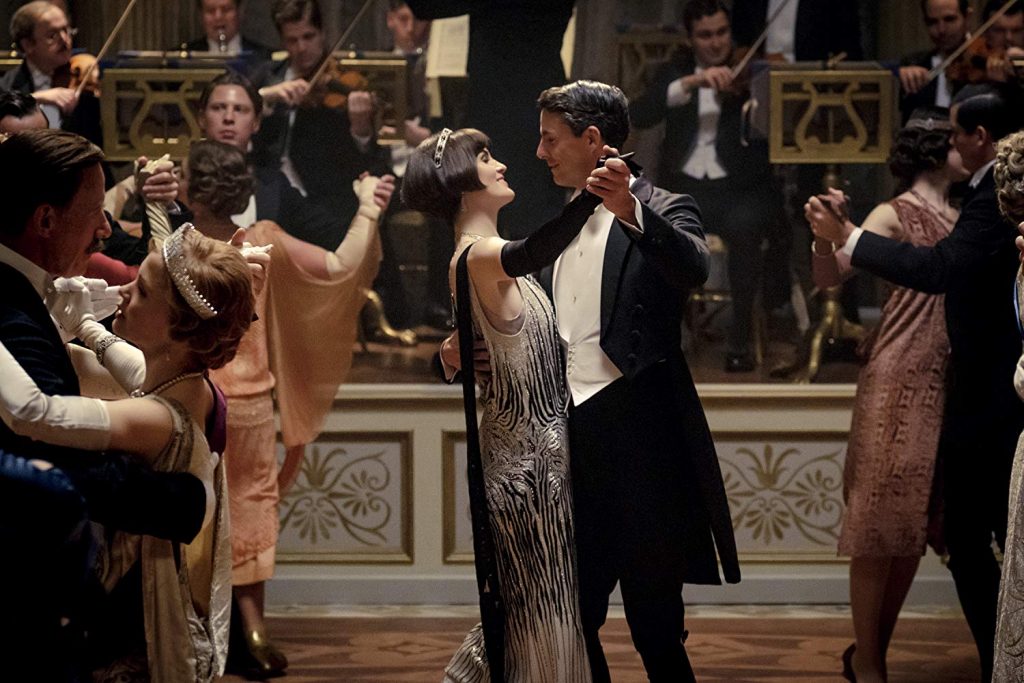The king and queen are coming to Downton Abbey, and everything must be perfect.
Such is the basic premise that launches the “Downton Abbey” film released Friday, Sept. 20. But, as is typical of the famous British TV series, one plotline simply will not do.
On the one hand, it seems only natural to create a feature-length film out of the series. With six seasons running between 2010 and 2015, the show has received a total of 15 Primetime Emmy Awards (including Outstanding Miniseries in 2011), three Golden Globes, four Screen Actors Guild Awards, and dozens more nominations.
In 2011, the Guiness Book of World Records recognized “Downton Abbey” as the most critically acclaimed English-language television show in the world. It has been broadcast in more than 200 countries and reached at least 120 million people worldwide.
A “Downton Abbey” movie would have no trouble finding an audience, to say the least. On top of all that, the breathtaking setting, costumes, and cinematography that plunge viewers into an era dripping with elegance and charm simply beg to be thrown on the big screen.
On the other hand, the myriad characters and plotlines that captivated audiences for five years do not lend themselves well to a major motion picture in which a beginning, middle, and end can fit neatly into two hours and two minutes.
But it appears that writer Julian Fellowes and director Michael Fingeler have embraced that reality. That is, they know they cannot trim “Downton Abbey” down to a central plot revolving around one or two characters, at least not without risking alienating the fan base, so they don’t try.
As a result, the movie inevitably cannot be a traditional movie; for better or worse, it feels like one long episode.
There is, of course, the overarching event that drives the plot, the royal visit, which alone creates a delightful escapade of preparations, triumphs, and pitfalls. But that particular event fades in and out of focus as other subjects, like the dilemmas facing Ladies Mary and Edith, the mission preoccupying Lady Violet Crawley, or the quibbles among the staff, trade places in the spotlight.
The main benefit of this structure is that it highlights moments of great acting and brilliant dialogue for many characters. Lord and Lady Grantham, Mrs. Patmore, Carson, and Daisy all have their moments to shine. And thankfully, the film does not fail to provide some signature, hilarious, and flawlessly delivered one-liners from Maggie Smith’s impeccable Lady Violet.
The drawback to the film’s structure is that it can feel choppy at times. Moreover, some of the side stories are more compelling than others, and a few leave loose ends untied. For the most part, however, “Downton Abbey” successfully weaves them together into a coherent narrative.
Unfortunately, the lack of a strong central plotline also leaves room for “Downton Abbey” to incorporate the scandals and unseemly themes that appeared throughout the series.
Most prominently, butler Thomas Barrow’s homosexuality is the subject of a side story that involves the discovery of a gay bar, a run-in with the police, and a romance that is made out to be no different from the endearing, male-female love interests that develop among other characters.
However historically accurate the forced secrecy and police actions might be, the story’s portrayal pushes the narrative that the homosexual lifestyle is normal, even admirable, and makes Barrow and his companions out to be victims in a cruel society that simply cannot understand their ways.
If it weren’t for distasteful, agenda-driven elements like this one, “Downton Abbey” might have been worth a family trip to the movie theater. But those who wish for a more filtered version might be better off waiting until the streaming option is available and the fast-forward button is at hand.
And that’s a real shame, since it means missing out on enjoying the vast expanses of the British countryside and exquisite detail of the Downton ballroom on the big screen.
In the end, one thing is clear: “Downton Abbey” was tremendously successful as a series, and it has enough brilliant cinematography, characters, and dialogue to make it (give or take a few scenes) a pleasant movie, if not a profound one.

